Filter by
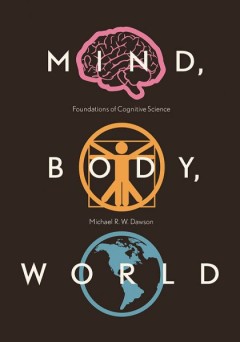
Mind, Body, World Foundations of Cognitive Science
Examples, cases, and research findings taken from the wide range of phenomena studied by cognitive scientists effectively explain and explore the relationship among the three perspectives. Intended to introduce both graduate and senior undergraduate students to the foundations of cognitive science, Mind, Body, World addresses a number of questions currently being asked by those practicing in th…
- Edition
- -
- ISBN/ISSN
- 9781927356173.01
- Collation
- -
- Series Title
- OPEL (Open Paths to Enriched Learning)
- Call Number
- -
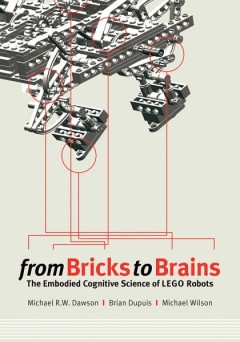
From Bricks to Brains The Embodied Cognitive Science of LEGO Robots
From Bricks to Brains introduces embodied cognitive science, and illustrates its foundational ideas through the construction and observation of LEGO Mindstorms robots. Discussing the characteristics that distinguish embodied cognitive science from classical cognitive science, From Bricks to Brains places a renewed emphasis on sensing and acting, the importance of embodiment, the exploration of …
- Edition
- -
- ISBN/ISSN
- 9781897425787.01
- Collation
- -
- Series Title
- -
- Call Number
- 354 pages
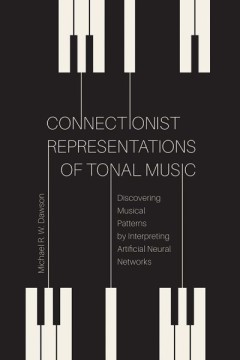
Connectionist Representations of Tonal Music Discovering Musical Patterns by…
Intended to introduce readers to the use of artificial neural networks in the study of music, this volume contains numerous case studies and research findings that address problems related to identifying scales, keys, classifying musical chords, and learning jazz chord progressions. A detailed analysis of the internal structure of trained networks could yield important contributions to the fiel…
- Edition
- -
- ISBN/ISSN
- 9781771992206.01
- Collation
- -
- Series Title
- -
- Call Number
- 6 x 9, 312 pages
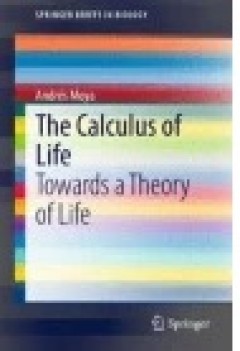
The Calculus of Life
This book explores the exciting world of theoretical biology and is divided into three sections. The first section examines the roles played by renowned scientists such as Jacob, Monod, Rosen, Turing, von Bertalanffy, Waddington and Woodger in developing the field of theoretical biology. The second section, aided with numerous examples, supports the idea that logic and computing are suitable fo…
- Edition
- -
- ISBN/ISSN
- 978-3-319-16970-5
- Collation
- XIII, 95
- Series Title
- SpringerBriefs in Biology
- Call Number
- -

The Bumpy Road
This book examines the different areas of knowledge, traditions, and conceptual resources that contributed to the building of Max Planck’s theory of radiation. It presents an insightful comparative analysis that not only sheds light upon a fundamental chapter in the history of modern physics, but also enlarges our understanding of how theoreticians work.
- Edition
- -
- ISBN/ISSN
- 978-3-319-20031-6
- Collation
- XII, 112
- Series Title
- SpringerBriefs in History of Science and Technology
- Call Number
- -
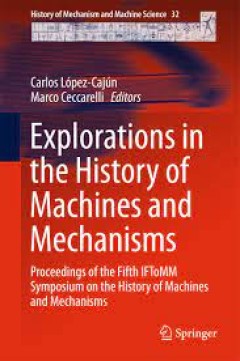
Explorations in the History of Machines and Mechanisms Proceedings of the Fi…
It contains work on theories and facts concerning mechanisms and machines from antiquity to current times as viewed in the present day. Topics include modern reviews of past works; people, history, and their works; direct memories of the recent past; historic development theories; the history of the design of machines and mechanisms; developments of mechanical design and automation; the histori…
- Edition
- -
- ISBN/ISSN
- 978-3-319-31184-5
- Collation
- 194 b/w illustrations
- Series Title
- -
- Call Number
- -

Exploiting Hidden Structure in Matrix Computations: Algorithms and Applicatio…
Focusing on special matrices and matrices which are in some sense `near’ to structured matrices, this volume covers a broad range of topics of current interest in numerical linear algebra. Exploitation of these less obvious structural properties can be of great importance in the design of efficient numerical methods, for example algorithms for matrices with low-rank block structure, matrices …
- Edition
- -
- ISBN/ISSN
- 978-3-319-49887-4
- Collation
- 11 b/w illustrations, 46 illustrations in colour
- Series Title
- -
- Call Number
- -
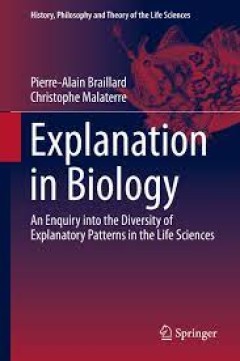
Explanation in Biology
Patterns of explanation in biology have long been recognized as different from those deployed in other scientific disciplines, especially that of physics. Celebrating the diversity of interpretative models found in biology, this volume details their varying types as well as explaining their relationships to one another. It covers the key differentials with other sciences in the nature of explan…
- Edition
- -
- ISBN/ISSN
- 978-94-017-9822-8
- Collation
- 52 b/w illustrations
- Series Title
- -
- Call Number
- -
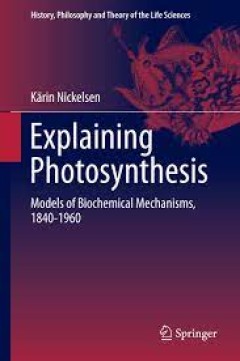
Explaining Photosynthesis
Recounting the compelling story of a scientific discovery that took more than a century to complete, this trail-blazing monograph focuses on methodological issues and is the first to delve into this subject. This book charts how the biochemical and biophysical mechanisms of photosynthesis were teased out by succeeding generations of scientists, and the author highlights the reconstruction of th…
- Edition
- -
- ISBN/ISSN
- 978-94-017-9582-1
- Collation
- 56 b/w illustrations, 6 illustrations in colour
- Series Title
- -
- Call Number
- -
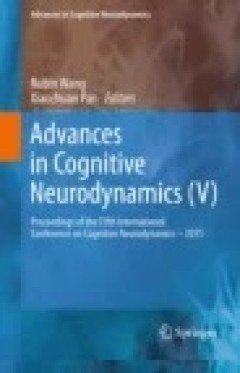
Advances in Cognitive Neurodynamics (V): Proceedings of the Fifth Internation…
This proceedings contains articles submitted to the fifth International Conference on Cognitive Neurodynamics (ICCN2015). In ICCN2015, twelve invited plenary lectures were presented by the leading scientists in their respective research fields. More than 15 mini-symposiums are organized by specialists with topics covering: motor control and learning, dynamic coding in distributed neural circuit…
- Edition
- Ed. 1
- ISBN/ISSN
- 978-981-10-0207-6
- Collation
- XXIII, 872
- Series Title
- Advances in Cognitive Neurodynamics
- Call Number
- 616.80076 ADV a
 Computer Science, Information & General Works
Computer Science, Information & General Works  Philosophy & Psychology
Philosophy & Psychology  Religion
Religion  Social Sciences
Social Sciences  Language
Language  Pure Science
Pure Science  Applied Sciences
Applied Sciences  Art & Recreation
Art & Recreation  Literature
Literature  History & Geography
History & Geography